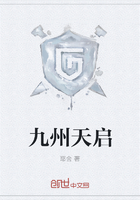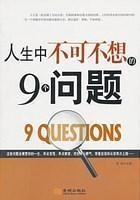Thanks to the machine, the spinner can live in England while the weaver resides in the East Indies. Before the invention of machinery, the industry of a country was carried on chiefly with raw materials that were the products of its own soil; in England -- wool, in Germany -- flax, in France -- silks and flax, in the East Indies and the Levant -- cottons, etc. Thanks to the application of machinery and of steam, the division of labor was about to assume such dimensions that large-scale industry, detached from the national soil, depends entirely on the world market, on international exchange, on an international division of labor. In short -- the machine has so great an influence on the division of labor, that when, in the manufacture of some object, a means has been found to produce parts of it mechanically, the manufacture splits up immediately into two works independent of each other.
Need we speak of the philanthropic and providential aim that M.
Proudhon discovers in the invention and first application of machinery?
When in England the market had become so far developed that manual labor was no longer adequate, the need for machinery was felt. Then came the idea of the application of mechanical science, already quite developed in the 18th century.
The automatic workshop opened its career with acts which were anything but philanthropic. Children were kept at work at the whip's end;they were made an object of traffic and contracts were undertaken with the orphanages. All the laws on the apprenticeship of workers were repealed, because, to use M. Proudhon's phraseology, there was no further need for synthetic workers. Finally, from 1825 onwards, almost all the new inventions were the result of collisions between the worker and the employer who sought at all costs to depreciate the worker's specialized ability.
After each new strike of any importance, there appeared a new machine.
So little indeed did the worker see in the application of machinery a sort of rehabilitation, restoration -- as M. Proudhon would say -- that in the 18th century he stood out for a very long time against the incipient domination of the automation.
"Wyatt," says Doctor Ure, "invented the series of fluted rollers...
(the spinning fingers usually ascribed to Awkright)....
"The main difficulty did not, to my apprehension, lie so much in the invention of a proper self-acting mechanism... as in training human beings to renounce their desultory habits of work, and to identify themselves with the unvarying regular- ity of the complex automation. But to devise and administer a successful code of factory discipline, suited to the necessities of factory diligence, was the Herculean enter- prise, the noble achievement of Awkright."[I 21-22, 23]
In short, by the introduction of machinery, the division of labor inside society has grown up, the task of the worker inside the workshop has been simplified, capital has been concentrated, human beings have been further dismembered.
When M. Proudhon wants to be an economist, and to abandon for a moment the "evolution of ideas in serial relation in the understanding", then he goes and draws erudition from Adam Smith, from a time when the automatic workshop was only just coming into existence. Indeed, what a difference between the division of labor as it existed in Adam Smith's day and as we see it in the automatic workshop! In order to make this properly understood, we nee d only quote a few passages from Dr. Ure's The Philosophy of Manufactures .
"When Adam Smith wrote his immortal elements of economics, automatic machinery being hardly known, he was properly led to regard the division of labor as the grand principle of manufacturing improvement; and he showed, in the example of pin-making, how each handicraftsman, being thereby enabled to perfect himself by practice in one point, became a quicker and cheaper workman. In each branch of manufacture he saw that some parts were, on that principle, of easy execution, like the cutting of pin wires into uniform lengths, and some were comparatively difficult, like the formation and fixation of their heads; and therefore he concluded that to each a workman of appropriate value and cost was naturally assigned. This appropriation forms the very essence of the division of labor....
"But what was in Dr. Smith's time a topic of useful illus- tration, cannot now be used without risk of misleading the public mind as to the right principle of manufacturing industry. In fact, the division, or rather adaptation of labor to the different talents of men, is little thought of in factory employment. On the contrary, wherever a process requires a peculiar dexterity and steadiness of hand, it is withdrawn as soon as possible from the cunning workman, who is prone to irregularities of many kinds, and it is placed in charge of a peculiar mechanism, so self-regulating, that a child may superintend it.















